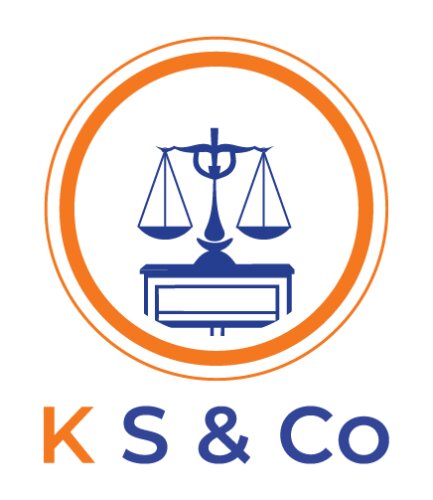Best Employer Lawyers in Mumbai
Share your needs with us, get contacted by law firms.
Free. Takes 2 min.
List of the best lawyers in Mumbai, India
About Employer Law in Mumbai, India
Employer law in Mumbai, India governs the relationship between employers and employees. It encompasses various aspects, such as hiring, wages, working conditions, termination, and disputes. Understanding employer law is essential for both employers and employees to ensure fair treatment and to resolve any legal issues that may arise in the workplace.
Why You May Need a Lawyer
There are several situations where seeking legal help in the field of employer law becomes necessary. Some common examples include:
- Wrongful termination: If you believe you were fired unfairly or without proper cause, a lawyer can review your case and help you determine if you have grounds for legal action.
- Discrimination or harassment: If you have been subjected to unlawful discrimination or harassment based on attributes like sex, race, religion, or disability, a lawyer can guide you through filing a complaint with the appropriate authorities.
- Contract disputes: If you are facing issues related to your employment contract, such as non-payment of wages or breach of contract by your employer, a lawyer can provide legal advice and help protect your rights.
- Workplace injuries: If you have suffered an injury at your workplace and need assistance with obtaining workers' compensation benefits or filing a personal injury claim, a lawyer specializing in employer law can provide guidance.
- Unpaid benefits: If your employer has failed to provide entitled benefits, such as paid leave, health insurance, or retirement benefits, a lawyer can help you understand your rights and take appropriate legal action.
Local Laws Overview
In Mumbai, India, employer law is primarily governed by the following key aspects:
- The Industrial Disputes Act, 1947: This act regulates employment issues, including disputes, retrenchment, and layoff procedures.
- The Shops and Establishments Act: This act covers various aspects, such as working hours, holidays, wages, leave policies, and employment conditions in establishments like shops, hotels, and restaurants.
- The Payment of Wages Act, 1936: This act ensures the payment of wages and prohibits unauthorized deductions from employee salaries.
- The Minimum Wages Act, 1948: This act establishes minimum wage rates for different industries and sectors to protect the interests of workers.
Frequently Asked Questions
Q: What is the procedure for filing a complaint for wrongful termination?
A: If you believe you were wrongfully terminated, you can file a complaint with the labor commissioner or appropriate authority within three months of the termination. It is advisable to consult a lawyer who can guide you through the process and help you gather the necessary evidence to support your claim.
Q: How can I report workplace discrimination or harassment?
A: To report workplace discrimination or harassment, you can file a complaint with the local Equal Opportunity Commission or the appropriate authority. It is recommended to consult a lawyer who specializes in employment law and can guide you through the process while ensuring your rights are protected.
Q: Can an employer withhold my wages?
A: No, an employer cannot withhold your wages unless authorized by law or a valid employment contract. If your employer has unlawfully withheld your wages, you may file a complaint with the labor commissioner or seek legal assistance to recover the unpaid amount.
Q: What remedies are available for workplace injuries?
A: If you sustain a workplace injury, you may be entitled to workers' compensation benefits. It is crucial to report the injury to your employer immediately and seek necessary medical assistance. Consulting a lawyer specializing in workplace injuries can help you navigate the compensation process and evaluate whether filing a personal injury claim is appropriate.
Q: How can I ensure my employer provides me with entitled benefits?
A: Ensuring your employer provides you with all entitled benefits starts with understanding your employment contract and relevant labor laws. If you are being denied benefits, consult a lawyer who can review your situation, advise you on your rights, and help you take appropriate legal action if necessary.
Additional Resources
If you need legal advice or further assistance, you may find the following resources helpful:
- Ministry of Labor and Employment: www.labour.gov.in
- Labour Commissioner's Office, Mumbai: Contact details can be found on www.labourcommissionermumbai.gov.in
- Bar Council of Maharashtra and Goa: www.barcouncilmahgoa.org
- Legal Aid and Services in Mumbai: Contact local legal aid societies or NGOs that provide free or low-cost legal assistance.
Next Steps
If you require legal assistance in matters related to employer law in Mumbai, India, consider taking the following steps:
- Identify your legal issue: Determine the specific problem or concern you are facing, such as unfair termination, workplace harassment, or contractual disputes.
- Research local laws: Familiarize yourself with relevant employer laws in Mumbai, India to understand your rights and obligations.
- Consult a lawyer: Seek the services of an experienced lawyer who specializes in employer law. They can provide personalized advice based on your situation.
- Gather necessary documents: Collect any relevant documents, such as employment contracts, payslips, or communication records, that might be helpful for your case.
- Discuss fees and representation: During your initial consultation with a lawyer, discuss their fees, payment structure, and the scope of their representation in your case.
- Take appropriate legal action: Based on the advice of your lawyer, decide on the appropriate legal actions to address your concerns, such as filing complaints, negotiating settlements, or pursuing litigation.
Lawzana helps you find the best lawyers and law firms in Mumbai through a curated and pre-screened list of qualified legal professionals. Our platform offers rankings and detailed profiles of attorneys and law firms, allowing you to compare based on practice areas, including Employer, experience, and client feedback.
Each profile includes a description of the firm's areas of practice, client reviews, team members and partners, year of establishment, spoken languages, office locations, contact information, social media presence, and any published articles or resources. Most firms on our platform speak English and are experienced in both local and international legal matters.
Get a quote from top-rated law firms in Mumbai, India — quickly, securely, and without unnecessary hassle.
Disclaimer:
The information provided on this page is for general informational purposes only and does not constitute legal advice. While we strive to ensure the accuracy and relevance of the content, legal information may change over time, and interpretations of the law can vary. You should always consult with a qualified legal professional for advice specific to your situation.
We disclaim all liability for actions taken or not taken based on the content of this page. If you believe any information is incorrect or outdated, please contact us, and we will review and update it where appropriate.















